The architecture of the New World, from the time of its European colonization, has always been influenced by international fashions, and so the buildings of historical districts will have a certain familiarity. Distinctiveness often comes after a generation or so of experience with local conditions, where a unique local style will naturally develop. Then a new fashion fad starts the process all over again.
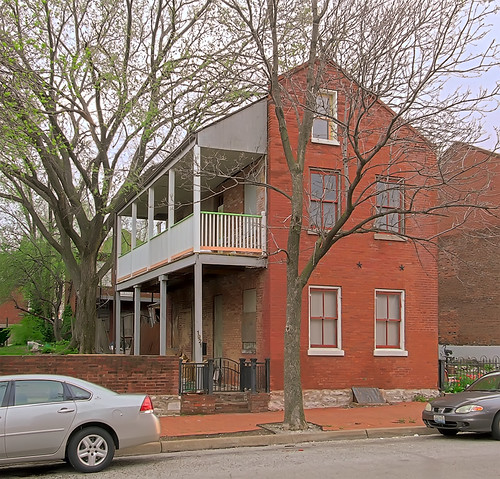
Overhanging eves and covered porches, especially on the south side of a building, are well suited to warm, sunny Summer climates like we find in Saint Louis, and are particularly useful to prevent sunlight from entering the building during the warmest part of the day. These features were quickly adopted by the French colonists in this region, and covered porches such as this one are very common in older homes in the city.

Americans who moved here after the Louisiana Purchase brought their own building styles with them. However, New England style homes are ill suited to our climate, and will be extremely hot in the summertime. This building has a garret apartment, which is probably unlivable without air conditioning, and the windows are exposed to the full force of the summer sun. But note the covered porch in the back; most homes here, no matter what style or era, are eventually retrofit with one.
The buildings here are almost universally made of clay brick, which was mined and manufactured locally. This was mandated by a city ordinance, after a steamboat explosion sparked a massive fire which destroyed much of downtown.
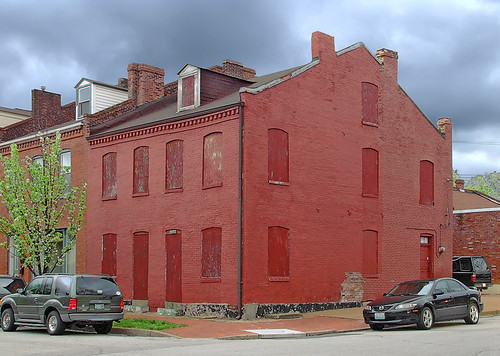
Handyman needed. Since the latest real estate boom has ended, this particular building will likely remain unoccupied for a while. Soulard still has many buildings that need restoration.
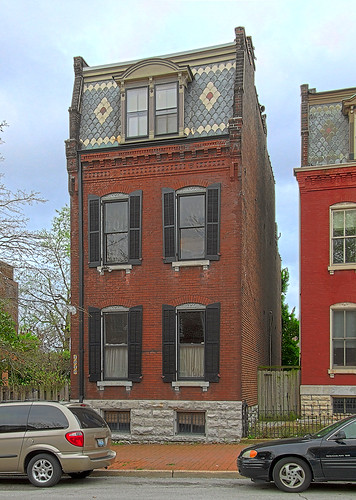
The homes here are relatively large, although they sit on small lots. This is a tall, deep, but very narrow building.

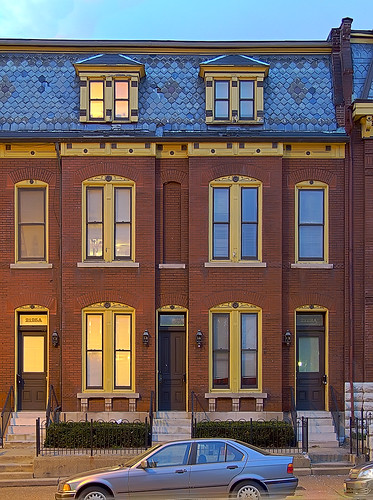
Townhouses, narrow, but large.

Brick sidewalk. The streets are brick underneath the asphalt. Some neighborhoods nearby still have exposed brick streets.

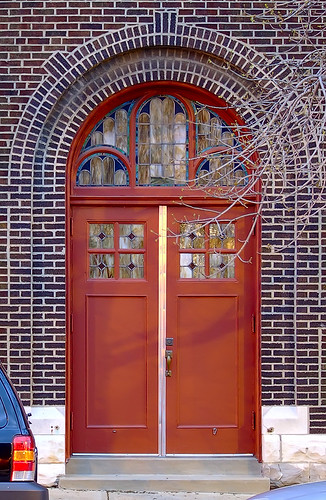
Door to Saint Joseph (Croatian) Catholic Church.

Soulard still has industry, but used to have much more, interspersed among the housing. This former factory is now apartments. Soulard still has many examples of that traditional institution, the corner tavern.

Click here for older photos of Soulard. And one more.

Handyman needed. Since the latest real estate boom has ended, this particular building will likely remain unoccupied for a while. Soulard still has many buildings that need restoration.

The homes here are relatively large, although they sit on small lots. This is a tall, deep, but very narrow building.


Townhouses, narrow, but large.

Brick sidewalk. The streets are brick underneath the asphalt. Some neighborhoods nearby still have exposed brick streets.


Door to Saint Joseph (Croatian) Catholic Church.

Soulard still has industry, but used to have much more, interspersed among the housing. This former factory is now apartments. Soulard still has many examples of that traditional institution, the corner tavern.

Click here for older photos of Soulard. And one more.


No comments:
Post a Comment